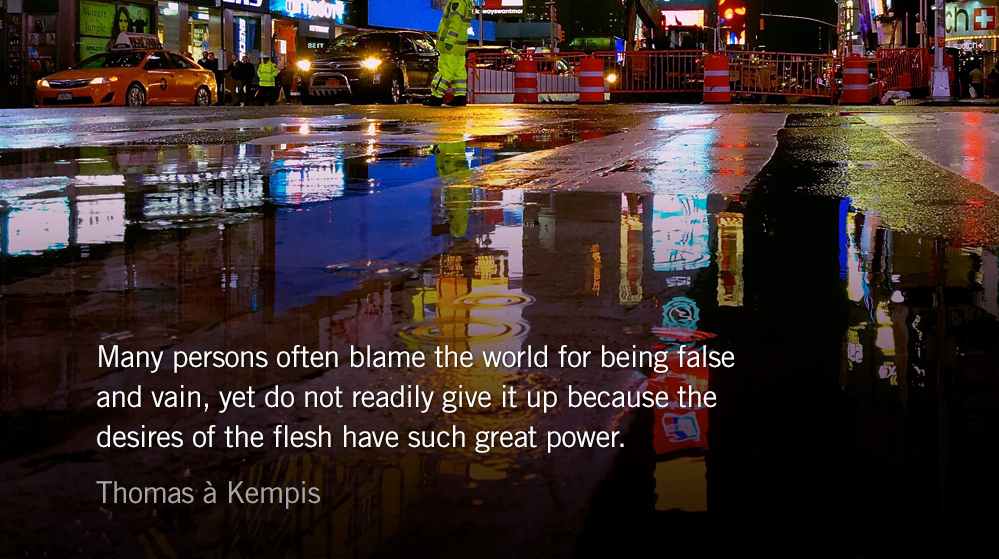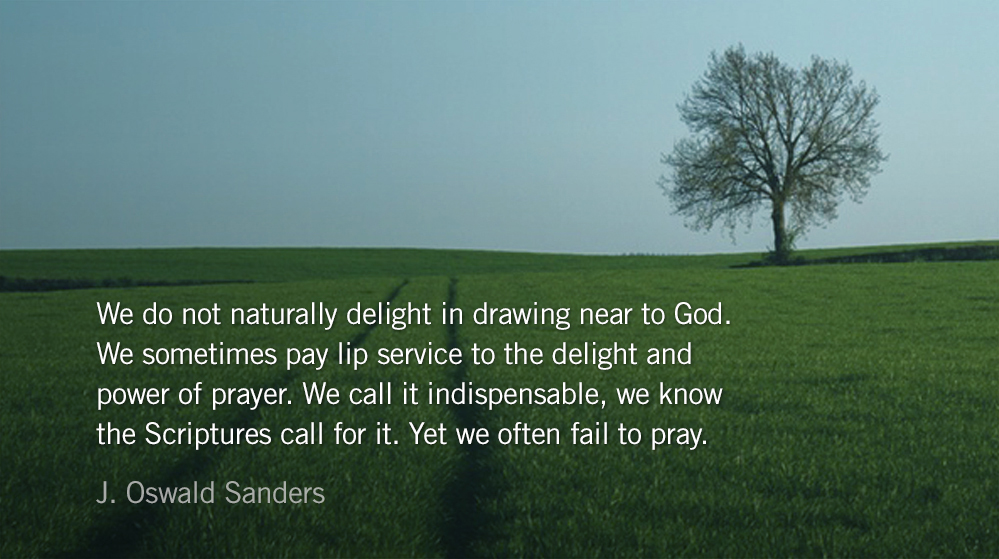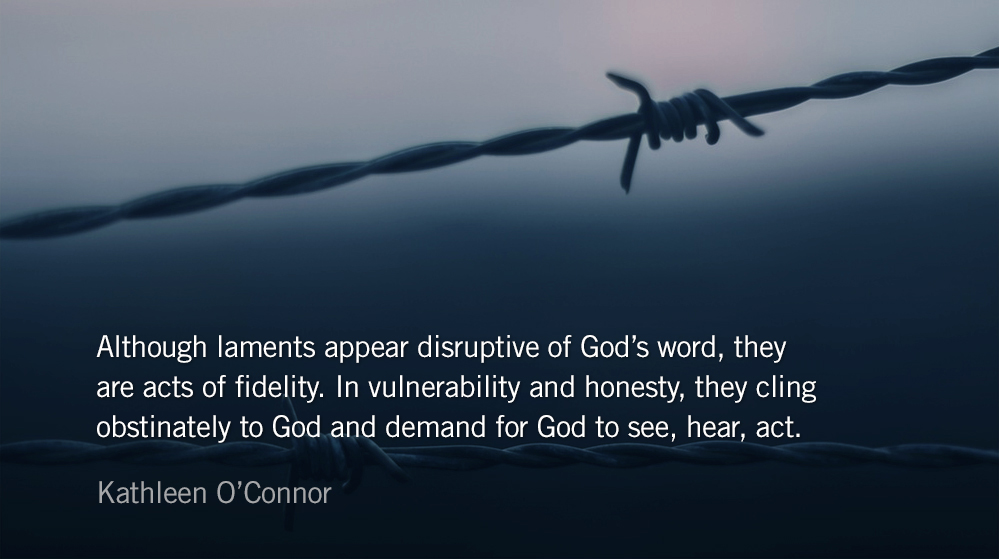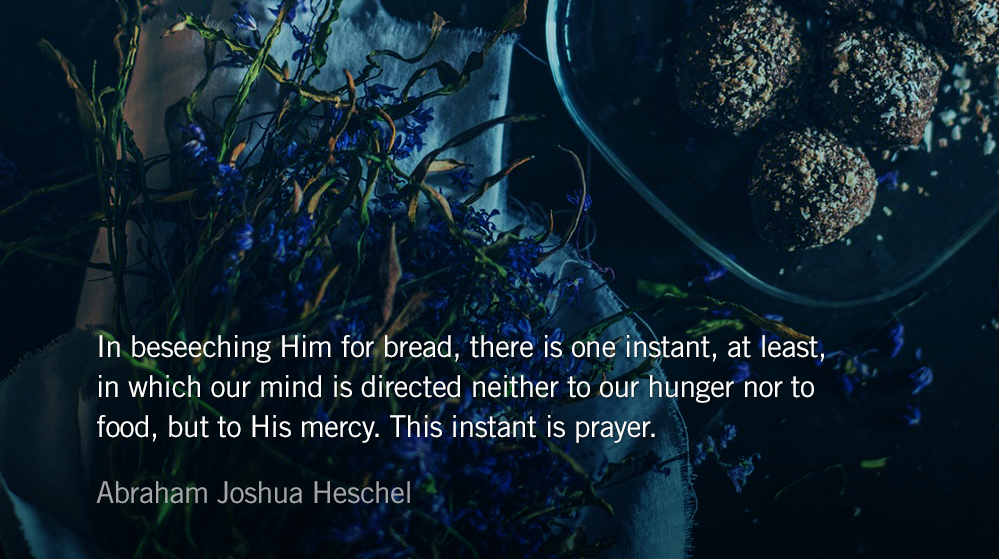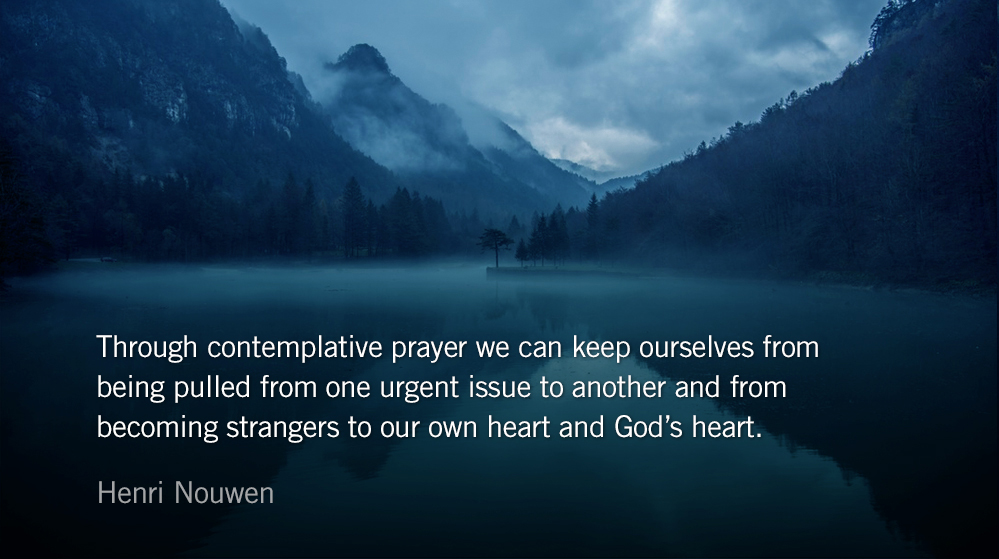For when one trouble or temptation leaves, another comes. Indeed, even while the first conflict is still raging, many others begin unexpectedly.
― Thomas à Kempis
Lenten Reflection: Broken Love
The Park Forum
“Often it is a small thing that makes me downcast and sad,” laments Thomas à Kempis. The 15th century theologian was part of a community that, although they took no vows, lived a life of intentional obedience, chastity, and poverty.
It is easy to dismiss those who willingly sacrifice the comforts of their time as far stronger than the average person of faith—but à Kempis’ writings reveal the depth of his daily struggle. In The Imitation Of Christ, he confesses:
I propose to act bravely, but when even a small temptation comes I find myself in great straits. Sometimes it is the merest trifle which gives rise to grievous temptations. When I think myself somewhat safe and when I am not expecting it, I frequently find myself almost overcome by a slight wind.
Look, therefore, Lord, at my lowliness and frailty which You know so well. Have mercy on me and snatch me out of the mire that I may not be caught in it and may not remain forever utterly despondent.
Focusing his argument onto the realities that all Christians face, à Kempis confesses that it is not his commitments that trip him up, but his idolatrous love affair with a broken and sinful world.
Alas! What sort of life is this, from which troubles and miseries are never absent, where all things are full of snares and enemies?… How is it possible to love a life that has such great bitterness, that is subject to so many calamities and miseries? Indeed, how can it even be called life when it begets so many deaths and plagues? And yet, it is loved, and many seek their delight in it.
Many persons often blame the world for being false and vain, yet do not readily give it up because the desires of the flesh have such great power. Some things draw them to love the world, others make them despise it. The lust of the flesh, the desire of the eyes, and the pride of life lead to love, while the pains and miseries, which are the just consequences of those things, beget hatred and weariness of the world.
Vicious pleasure overcomes the soul that is given to the world. She thinks that there are delights beneath these thorns, because she has never seen or tasted the sweetness of God or the internal delight of virtue.
The Prayer Appointed for the Week
Almighty God, you know that we have no power in ourselves to help ourselves: Keep me both outwardly in my body and inwardly in my soul, that I may be defended from all adversities which may happen to the body, and from all evil thoughts which may assault and hurt the soul; through Jesus Christ our Lord, who lives and reigns with you and the Holy Spirit, one God, for ever and ever. Amen.
– From The Divine Hours: Prayers for Springtime by Phyllis Tickle.
Full prayer available online and in print.
Today’s Reading
Exodus 38 (Listen – 4:23)
John 17 (Listen – 3:40)


